- Vancouver Island’s Sealand Flight, a flight training unit based in Campbell River, announced the first solo flight by a student pilot in a battery-electric airplane in Canada.
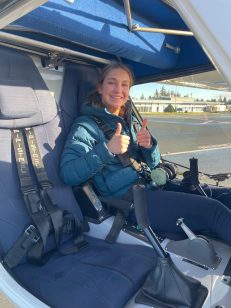
- The December 20th announcement named 18-year-old Catherine Check as the record-setting student. The school operates the first commercially operated Pipistrel Velis Electro in Canada.
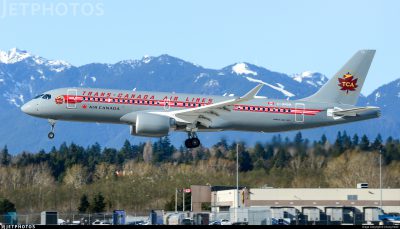
- Air Canada is celebrating five years since it took delivery of its first Airbus A220-300. Designed and assembled in Mirabel, Quebec, the airline has since added 59 more to the fleet. It recently announced the purchase of options for five more. “The efficiency and economics of the A220 have enabled Air Canada to expand its network across North America with routes that were simply not commercially viable with the previous generation of aircraft,” said Alexandre Lefevre, an Air Canada vice-president.
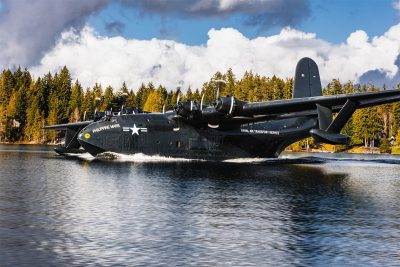
- The last Martin Mars flying boat to take to the skies is having trouble making it to its final resting place in the United States. The Philippine Mars was destined to an aviation museum in Arizona at around the same time the Hawai’i Mars was donated to the British Columbia Aviation Museum near Victoria. The Hawai’i made it to its destination on schedule, but the Philippine has been encountering engine problems on more than one of its engines. It had to abort its departure flight (with planned stops in San Francisco and San Diego) and detour to Pat Bay near Victoria’s airport for repairs, where it is now. Plans are to continue its flight south in the new year.
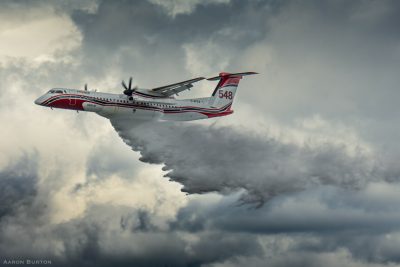
- The Conair Group of Abbotsford, British Columbia announces the completion of its 20th de Havilland Canada Dash 8-400 conversion to a fire-fighting aircraft. “We began production in 2005 delivering the first multi role airtanker to the French government”, said business development director for Conair Michael Benson. “Since then, year over year, we have steadily built and deployed these modern airtankers, in both the multi role and airtanker-only capacity. In the last four years, we have seen demand surge, driven by increasing numbers of wildfires and fires that are more extreme.”

- Browning West, LP, a California-based investment group with a 4.3 percent share of Montreal-based CAE, published an open letter to the company’s board of directors on December 20. In it, the investment group states that CAE has under-performed over the past five years and that it encourages the board to replace the outgoing CEO with one who has a “verifiable track record of value creation.”
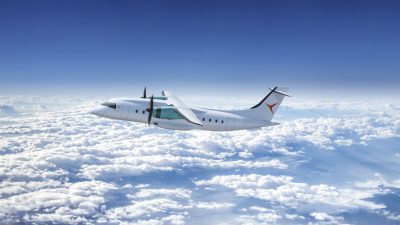
- Deutsche Aircraft of Germany, founded in 2020, is the current holder of the type certificate for the Dornier D328, a regional twin-turboprop airliner. It has now developed the D328eco, an elongated version of the Do328, with entry into service foreseen for 2027. The D328eco is designed to run on SAF (sustainable aviation fuel). Powering the turboprop will be a pair of Pratt & Whitney Canada PW127XT-S engines, which are designed to operate on 100 percent SAF. See this week’s featured video below.
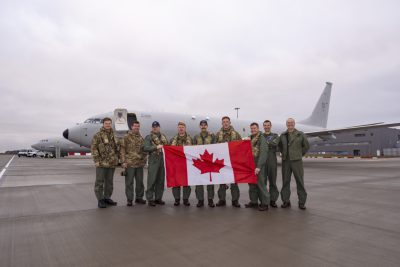
- Several RCAF air crew members are in Scotland to receive transition training on the Royal Air Force’s Boeing P-8A Poseidon maritime patrol aircraft. After ground training for several months at RAF Lossiemouth, four crewmembers began their initial Poseidon flights on December 10. “The RAF support is key to our rapid and safe transition from one aircraft to another,” said RCAF Captain Darren Kirk. “The training and operational exposure will allow us to incorporate best practices and apply lessons learned.” The RAF provides training for other Poseidon operators, including Norway and Germany. The RCAF will receive up to 16 of the Boeing 737 derivatives beginning in 2026 in a contract worth $3.4 billion. The aircraft replaces the Lockheed CP-140 Auroras.
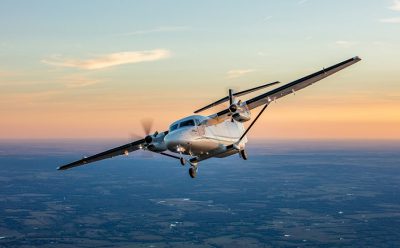
- Textron Aviation’s Cessna SkyCourier, a twin-engine turboprop, has received type certification by Transport Canada. The first one to be registered in Canada will go to Air Bravo of Ontario. It will be configured as a freighter. A pair of Pratt & Whitney Canada PT6A-65SCs will power the aircraft, which has a 6,000-lb payload. With a flat floor cabin, it can handle up to three LD3 shipping containers. Several of the type, which entered service in the U.S. in 2022, are operated by Mountain Air Cargo, a feeder airline for FedEx.
NOTE: There will be no newsletter next week (Dec. 30). Our weekly newsletter will resume on Jan. 6. In the meantime, enjoy the holidays!
